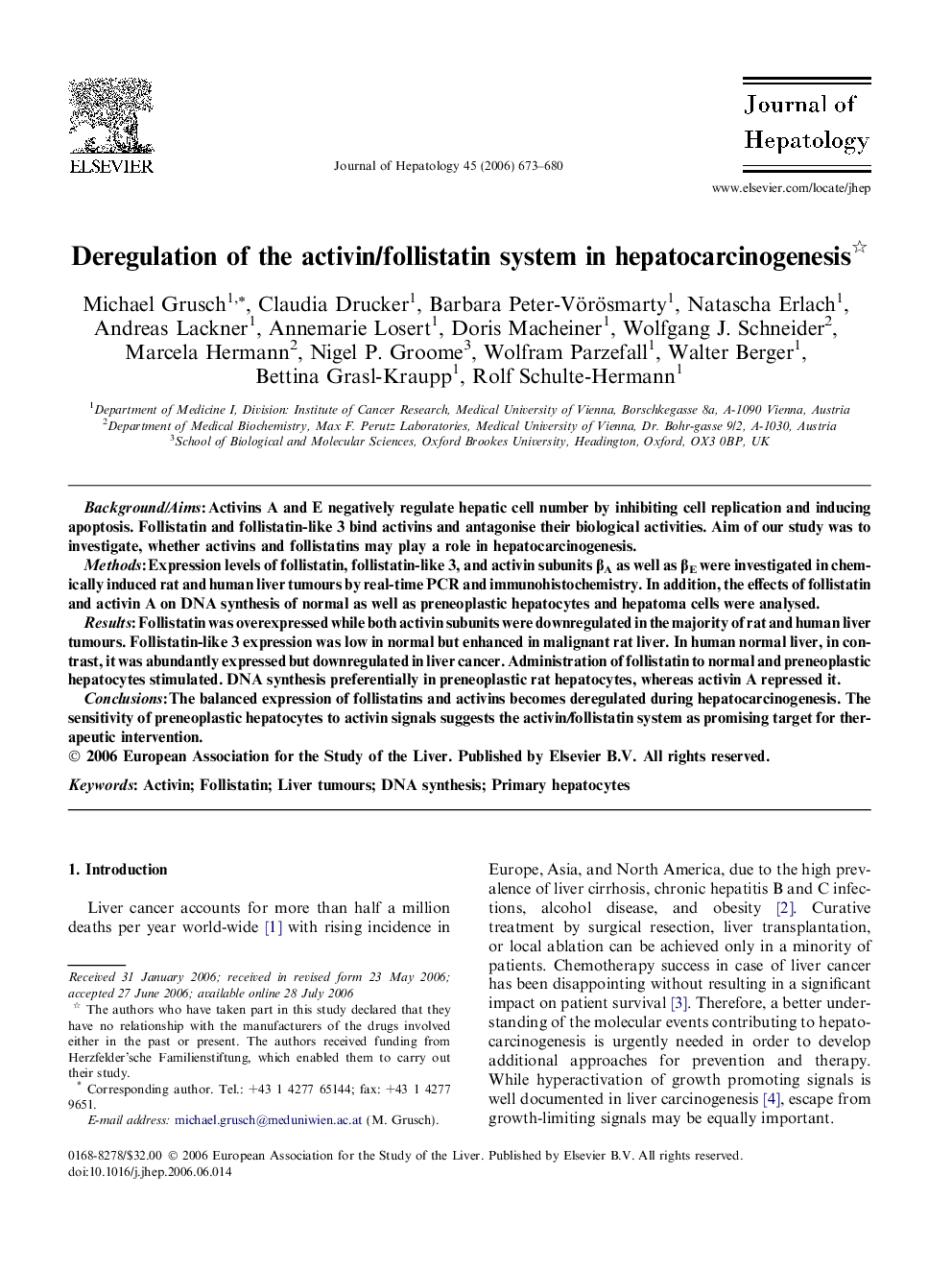| Article ID | Journal | Published Year | Pages | File Type |
|---|---|---|---|---|
| 3314792 | Journal of Hepatology | 2006 | 8 Pages |
Background/AimsActivins A and E negatively regulate hepatic cell number by inhibiting cell replication and inducing apoptosis. Follistatin and follistatin-like 3 bind activins and antagonise their biological activities. Aim of our study was to investigate, whether activins and follistatins may play a role in hepatocarcinogenesis.MethodsExpression levels of follistatin, follistatin-like 3, and activin subunits βA as well as βE were investigated in chemically induced rat and human liver tumours by real-time PCR and immunohistochemistry. In addition, the effects of follistatin and activin A on DNA synthesis of normal as well as preneoplastic hepatocytes and hepatoma cells were analysed.ResultsFollistatin was overexpressed while both activin subunits were downregulated in the majority of rat and human liver tumours. Follistatin-like 3 expression was low in normal but enhanced in malignant rat liver. In human normal liver, in contrast, it was abundantly expressed but downregulated in liver cancer. Administration of follistatin to normal and preneoplastic hepatocytes stimulated DNA synthesis preferentially in preneoplastic rat hepatocytes, whereas activin A repressed it.ConclusionsThe balanced expression of follistatins and activins becomes deregulated during hepatocarcinogenesis. The sensitivity of preneoplastic hepatocytes to activin signals suggests the activin/follistatin system as promising target for therapeutic intervention.
